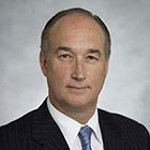Barnes & Thornburg LLP announced today that David Wood, John Corbett and Joshua Rosenberg have joined the firm’s Litigation Department and Insurance Recovery and Counseling Practice Group. The trio arrives from Anderson Kill’s Ventura, California, office, where Wood served as co-managing shareholder.
Wood, a partner, and Rosenberg, an associate, reside in Barnes & Thornburg’s Los Angeles office, while Corbett, of counsel, is based in Dallas. They are the latest attorneys to join the firm’s growing litigation bench, which in the last three months has added Anthony Son and Lee Hutton in Minneapolis; Elizabeth Brandon in Dallas; Brett Pyrdek in Chicago; and Michael Battle in Washington, D.C.
Earlier this year, Barnes & Thornburg’s insurance recovery group was named an “Insurance Practice Group of the Year” by Law360 for its successful representation of clients in several noteworthy litigation matters. Members of Barnes & Thornburg’s Insurance Recovery and Counseling Practice Group have litigated against virtually all major insurance carriers in trial and appellate courts across the country.
“David, John and Josh have helped corporate and individual policyholders resolve insurance coverage disputes throughout the U.S. and will add to our deep bench of insurance recovery lawyers across the country,” said Charles Edwards, co-chair of the firm’s Insurance Recovery and Counseling Practice Group. “We welcome this high-caliber group who will vigorously advocate on behalf of clients facing risks with significant insurance implications.”
The firm’s release continues:
About the Attorneys
David Wood has more than 30 years of experience in high-profile insurance disputes and recovery litigation involving Fortune 1000 corporations and corporate directors and officers spanning many different industries, including financial services, healthcare, high tech, telecommunications, hospitality, construction, manufacturing and automotive. He represents publicly- and privately-owned corporations in enforcing their claims under professional errors and omissions, D&O liability, special risk and general liability policies, and fidelity bonds, among others. He also assists clients on insurance coverage matters concerning data breaches and other cybersecurity issues.
Wood is a frequent speaker and author on insurance policy enforcement topics and often serves as a subject matter expert for media regarding notable insurance cases and issues. Additionally, Wood is treasurer and a member of the board of directors of the Atlantic Legal Foundation based in New York. Closer to home, he is a director and past president of the Casa Pacifica Centers for Children & Families serving abused and neglected children. He is recognized as a leading practitioner in his field, including a peer rating of “AV Preeminent® by his peers as listed in Martindale-Hubbell®. In 2016, he was selected for the fourth time by his peers for recognition in Southern California Super Lawyers for Insurance Coverage.
Wood received his J.D. from the University of California, Hastings College of Law after graduating cum laude from Williams College. He is admitted to practice in state of California and before the U.S. Court of Appeals for the Ninth Circuit and the U.S. District Courts for the Central, Eastern, Northern and Southern Districts of California.
John Corbett represents corporate policyholders in a wide variety of industries ranging from construction and transportation to telecommunications and healthcare management. He has extensive experience in obtaining recoveries under general liability, cyber insurance,
director and officers (D&O) and professional errors and omissions (E&O) policies.
Corbett received his J.D., cum laude, from the Pepperdine University School of Law and his M.A. and B.A. from the University of California, Santa Barbara. He is admitted to practice in the states of California and Texas.
Joshua Rosenberg works exclusively with policyholders within his insurance recovery practice and concentrates on corporate and commercial litigation as well. Previously, he worked as a land use and planning legal consultant. Prior to that, Rosenberg was a judicial intern for Hon. Dana M. Sabraw in the U.S. District Court for the Southern District of California.
Rosenberg received his J.D. from the Pepperdine University School of Law and his B.A. from the University of California, Los Angeles. He is admitted to practice in the state of California and before the U.S. District Court for the Central District of California.





